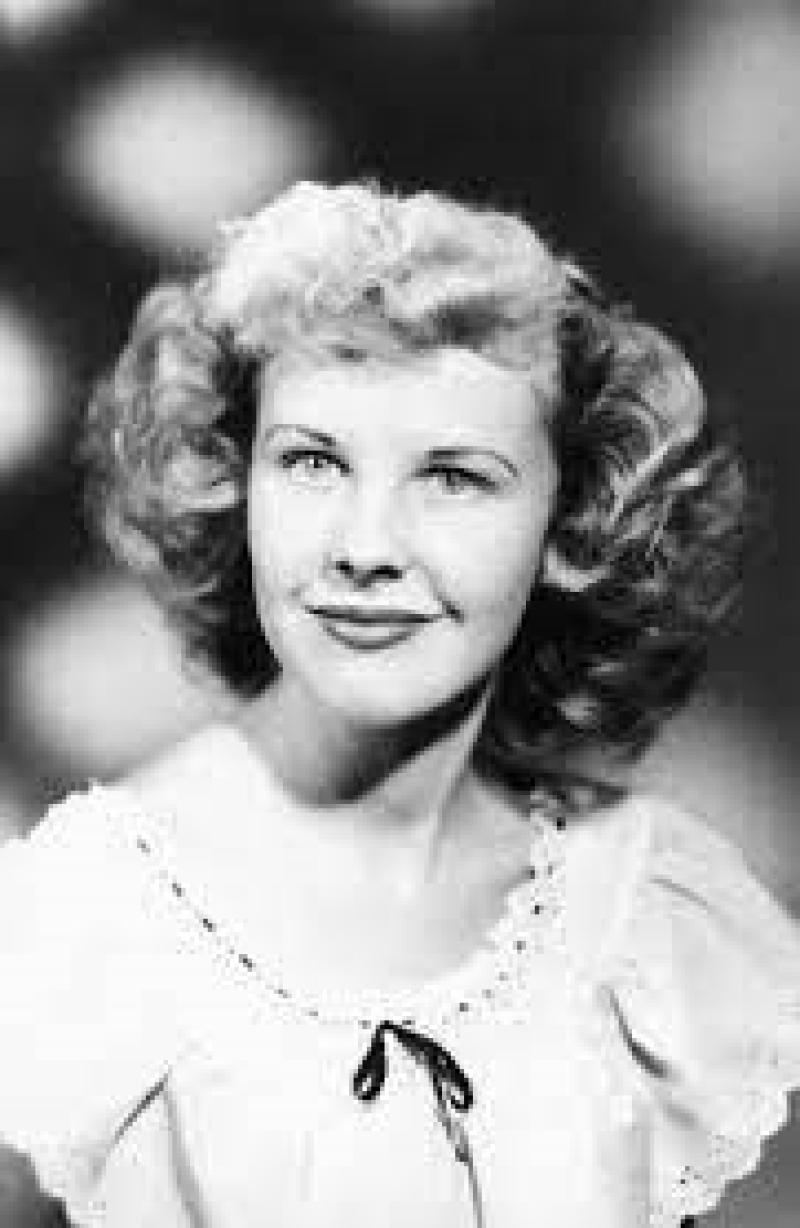How the CIA’s top-ranking woman beat the agency’s men at their own game


In the early history of the CIA, marked by towering male figures like Allen Dulles , William Colby and William “Wild Bill” Donovan , few careers proved more remarkable — and unlikely — than that of a Southern blue blood named Eloise Randolph Page. Page anticipated the launch of Sputnik when just about everyone else was taken by surprise. She was the top female officer in the CIA’s clandestine service in the 1960s and 70s and the first woman to head a major overseas station. She was physically tiny but larger-than-life, reactionary but visionary, snobby but able to overcome patriarchal provincialism to wield unheard-of influence, at a time when the agency’s sexist culture ensured most women’s career tracks were limited to secretarial and clerk roles.
After the war — when many women were told to leave and make room for returning veterans — Page hung on, employing her wide acquaintance with scientists and academics to track technical advances and wage a central contest of the Cold War: the scientific competition with the Soviet Union. On Oct. 4, 1957, Page was serving as chief of the Scientific and Technical Operations Staff when the Soviets shocked the American public by launching the satellite Sputnik. The news media portrayed the Sputnik launch as a failure of intelligence, while members of Congress accused the CIA of being “asleep at the switch.” The actual failure was that of a male-dominated bureaucracy to listen to what a woman was trying to tell them.
According to an internal CIA study declassified in 2013, Page’s office had compiled “dozens” of reports about Soviet plans to put a satellite in space, sourced from her “high-level contacts” in the scientific community. By May 1957, the agency well knew a launch was to occur, and roughly when. “It was to be between September 20th and October 4th,” Page later stated in an interview. “We had everything else there was to know about it. We had the angle of launch, we had the date.”
But despite vigorous efforts, she could not get a gatekeeper — Jack White, head of a major committee in the Office of Scientific Intelligence — to accept what she was hearing. He dismissed the intelligence as Soviet disinformation. Page visited him to try to change his mind, warning him that “we are going to have an intelligence failure.” She bet White a case of champagne that the launch would occur, and after it did, she said, “You should have seen my office.” Full of champagne. Her office wrote a bang-up after-action report, and she received a letter from OSI saying that the information in it was “essential and indispensable.”
That Page succeeded at an agency where women were marginalized was not only because of her persistence but because she had spent enough time in backrooms to well know the darkest corners of Langley. From her time as a secretary, she accumulated her colleagues’ secrets. Of Donovan, she once said, “I had the goods on him, and I played it for all it was worth.” One case officer marveled, “She had the pictures on somebody,” — incriminating photos.
For all her apparent power, though, Page remained at a disadvantage. She exerted influence from a bureaucratic position rather than an operational posting. As she rose through the administrative hierarchy, Page gained wide say over budgets. Any baron who wanted funding for a covert operation had to get the go-ahead from Eloise. “She scared some of these men to death,” remembered Lee Coyle. “They were afraid to go into her office.”
“She was in a position like J. Edgar Hoover to make or break a person,” said an operations officer, Mike Kalogeropoulos. “She knew where the bodies were buried. She knew the real story about everything. Nobody touched her.”
In 1978, Page became the first woman sent to head a major overseas CIA station, taking over as Athens station chief. “You would have thought the world was going to end,” recalled a CIA officer working in the inspector general’s office, who heard the chatter in the halls and beyond. “The reaction was so strong; it was like, ‘Oh my gosh, how can this happen, this is a disaster, this can never be!’”
While it may have been, at least in part, a gesture toward equality or a reflection of Page’s talents and deserts — the officer who promoted her, John McMahon, was seen as well intentioned when it came to women — in Page’s own view, her appointment represented a shrewd risk-benefit analysis by male rivals who wanted her out.
Nearing 60 years old, Page was dispatched to the CIA training facility near Williamsburg, Va., known as the Farm, almost four decades after she started her career during World War II. “She was five foot one, and skinny,” recalled Kalogeropoulos, who was beginning his own career at the same time. Kalogeropoulos found himself standing at the firing range behind a woman old enough to be his mother. “She fired and the gun flew right out of her hand. She went flying into the mud.” Page got up and tried again. Kalogeropoulos was deputized to “hold her shoulders as she shot, so she wouldn’t fall backward. I’m about 200 pounds, six feet tall, I’m holding this yellow-haired woman pointing down at the firing range.”
Rather than thank him, Page, upon learning his name, remarked that his surname was too Greek, and he should change it to Kellogg.
Kalogeropoulos’s first posting was to Athens, so he ended up working for Page. She liked him, and he liked her; over sherry on Fridays, she shared her understanding of why she’d been sent abroad. The men “were trying to get rid of her,” she told him. In her former position overseeing policy, staff positions and funding, she enjoyed, they felt, too much power. The barons resented her ability to approve or reject their budget requests and disliked having to come to her and grovel.
Men at headquarters had been pressing Page for years to go overseas, she told him. She had no real desire to serve in an overseas capacity and was able to put them off, saying she had to care for her aged mother. When her mother died, however, the pressure intensified. “They said, ‘You have to go, or we’ll cashier you,’” Kalogeropoulos remembered her saying — meaning that they would find a way to ease her out altogether.
The agency’s barons offered her one of two stations: Canberra, Australia or Athens, which was more “operationally vibrant,” to put it mildly. Athens was a hard, risky assignment. Three years earlier, Athens station chief Richard Welch had been murdered by left-wing terrorists waging a guerrilla war against the right-wing Greek regime. He was succeeded by Clair George, another bigfoot chief who later would be implicated in the Iran-contra scandal and convicted of lying to Congress. “It was a horrible time in Greece,” one covert officer recalled. The top job here was not one for the faint of heart. “She picked Athens just to show them up,” said Kalogeropoulos.
The men at headquarters thought they were setting her up for failure. Greece was a patriarchal culture, and there were fewer women more conventionally feminine, and conventionally Anglo-American, than Page. She hated olive oil, detested lamb, favored sherry and cocktails over retsina or ouzo.
To everyone’s surprise, the Greeks embraced her. “They liked her because she was very nice to them,” Kalogeropoulos said.
But many aspects of her behavior were egregious. In Athens, there was a Black family who helped take care of her residence; Page required one of the children, a boy of 8 or 9, to salute anyone who entered. It was racist and objectionable in the extreme. The U.S. ambassador was appalled. Page didn’t care. She also ignored directives from headquarters if she disagreed with them.
When Page returned, she called the staff into the secure room and divided them into two groups. One group consisted of those who had ratted on her; the other, those who had not. She turned to the rats and “proceeded to tell everybody what they had said. It was supposed to be confidential, and she just — it was just incredible,” Kalogeropoulos remembered. After that, he said, two case officers left the station. “She threw them out.”
None of this made her a revolutionary. She came from the same elite background as many of the men she worked with and shared their outlook along with their tactics. A hard-line anti-communist, she was right-wing to the point of being blinkered. When the conservative Greek government fell in 1981 and socialists took over, Page “wouldn’t let us report on it.” The radio silence out of Athens Station amounted to an intelligence failure.
This article was adapted from the new book “THE SISTERHOOD: The Secret History of Women at the CIA,” by Liza Mundy. Copyright © 2023 by Liza Mundy. Published in the United States by Crown, an imprint of Crown Publishing Group, a division of Penguin Random House LLC. All rights reserved.
Liza Mundy is a former Washington Post staff writer and the New York Times best-selling author of five books, including “Code Girls: The Untold Story of the American Women Code Breakers of World War II.” [amazon.com]


My pantheon of great women continues to expand exponentially.
Only misogynists and chauvinists are surprised by this. When will the left stop being surprised by the fact that women are equal and in many ways superior to men.
Only misogynists and chauvinists are surprised by this. When will the left stop being surprised by the fact that women are equal and in many ways superior to men.
And that's why-- recently many (not all!) on the left have become more misogynistic and chauvinistic. And now so many have become anti-Semitic as well (a hatred that for some times has been found mainly on the Right).
Ah yes, there are only "misogynists and chauvinists" on the left. What a 'surprise' you comment is. Find another seed to put your heels up.
So you don't want opinions that disagree with yours?
That de facto prior restraint (censorship) is typical of the far left.
Betty Page had a lot of influence upon men also.
If I did not I would delete them and I have never deleted anyone's since being here.
With apologies to the Bard, his comment history fell in my path and I tripped over it. /S
His comment is still there, what censorship? Hell, I was not even tempted to flag it.
Seems to be what much of this article is about ... @!@
All the BS above aside Ms Page is another in a long list of formidable women that have served our country with great distinction and heroism.
Two of my favorites and Catherine Leroy a war correspondent with the 173rd Airborne who made a combat jump with them in Operation Junction City, in Vietnam, and Dickey Chappell another war correspondent who was KIA with the US Marines in Vietnam.
Both are still honored today by the respective units.
Thank you.